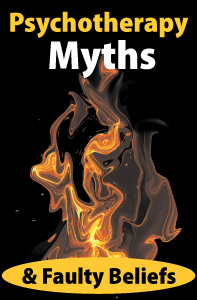SALE
$19.5
REG. $39

Related Courses

Psychotherapy Myths & Faulty Beliefs

Ethics & Boundaries in Psychotherapy
Ethics & Risk Management: Expert Tips 8
Kimberly K. McClanahan, PhD; Adam Alban, PhD, JD; Janet T. Thomas, PsyD
CE Credit: 3 Hours
Target Audience: Psychology CE | Counseling CE | Social Work CE | Marriage & Family Therapy CE
Learning Level: Intermediate
Course Abstract
Ethics & Risk Management: Expert Tips 8 is a 3-hour online continuing education (CE) course that addresses a wide variety of ethics and risk management topics, written by experts in the field. Topics include:
Can Confidentiality be Maintained in Group Therapy? - Discusses ethical issues involved in conducting group psychotherapy.
A Short Course on Encryption and Cloud Storage - Provides answers to common questions about encryption, cloud storage, confidentiality, and HIPAA.
Retiring Ethically - Reviews the professional aspects of preparing for retirement and the various tasks and challenges involved.
Coping with Disruptions in Practice Due to Death or Disability - Shares two stories of a practice lost to sudden death, and the steps you can take to prepare for unexpected disruptions.
Informed Consent: Ethical Challenges and Opportunities - Provides an overview of the ethical obligations related to informed consent and outlines three ethical challenges.
Ethical Practice and the Challenge of Vicarious Trauma - Examines how vicarious exposure to traumatic material can dramatically impact clinicians both personally and professionally.
Competence for Execution: the Ethical Binds - Summarizes the complex issues involved in determining if a person is competent for execution.
Sorting through Professional Liability Insurance for Needed Coverage - Offers guidance and considerations for choosing between Occurrence Form Coverage and Claims Made Coverage.
Closing a Practice: Practical, Ethical and Clinical Dimensions - Reviews the tasks and challenges involved in terminating a psychotherapy practice.
Is it Ethics or Law? - Discusses the similarities and differences between ethics and law, and what to do when they conflict.
21st Century Changes Ethics for Private Practice - Shares personal experiences dealing with security breaches and offers guidelines for using technology in your own practice.
Ethical Considerations for Clinical Supervisors - Examines the impact of supervision on supervisees and their clients, including competence, clinical oversight, and informed consent.
Correcting vs. Altering Records - Discusses the importance of keeping good treatment records and offers guidance for what to do (and not to do) when needing to make a correction to your records.
Ethical Considerations for Media Presentations - Offers considerations to keep in mind when using the media for professional purposes (the article focuses on radio and television, but can also be applied to the internet).
‘Ghosting’ May Create Ethics Issue - Discusses the passive-aggressive strategy of "ghosting" and offers guidance for what to do when it happens to you, the therapist.
Reducing Risk in Treating Divorcing Families - Provides an overview of several risk management practices for therapists who work with divorced or divorcing families, particularly the children of divorcing families.
Who Let that Doggie on the Airplane? - Examines the growing trend of Emotional Support Animals (ESA) and what to do when you are asked to provide an ESA support letter.
Informed Consent: Records and Fees - Highlights areas of the treatment relationship and issues related to informed consent in the areas of providing records when requested and in establishing fees.
Cloud-Based File-Sharing Can be HIPAA Secure - Shares several options for storing and sharing information securely through the cloud, so therapists no longer have to rely on the burdensome methods of faxing or sending patient documents via proprietary networks.
Social Media and Ethics - Offers guidance to help clinicians engage in meaningful self-reflection prior to engaging in social media for the purpose of preventing ethical breaches.
Therapists Must Keep Pace as Technology Changes Practice - Discusses the change in the method of creating and maintaining patient files, evidenced by the increased use of electronic records, and the areas of concern involved.
Ethical Ways to Counteract Negative Reviews Online - Explains how to manage your online reputation, including what you can ethically do if you receive a negative review - real or not.
The Wounded Psychologist: Adverse Effects from a Licensing Complaint - Explains why licensing boards were created, how licensing board complaints are dealt with, and the negative effects of complaints on clinicians.
Disclosures for Forensic Evaluations - Discusses the requirements for disclosure in forensic evaluations.
Reimbursement Diagnoses may be Co-Morbid - Reviews the ethical, legal and professional challenges of balancing concern for diagnostic work with insurance reimbursement issues.
Giving Professional Commentary on Public Figures - Offers advice on what you can or shouldn't say when asked to comment on public figures.
Managing Risk with Alcohol-Abusing Clients - Provides guidance on developing a dual-purposed informed consent agreement with working with special populations such as alcoholics or those characterized by high risk (e.g., suicidal or borderline personality disorder) behaviors.
Direct Secure Messaging is Best Electronic Option for Mental Health Records - Discusses use of Electronic Health Records (EHRs), concerns about the potential unrestricted flow of Protected Health Information (PHI), and how Direct Secure Messaging (DSM) can help.
Closeout Course #30-99 | 2017 | 49 pages | 20 posttest questions
Learning Objectives
Professional Development Resources (PDR) has been approved by the National Board for Certified Counselors (NBCC) as an Approved Continuing Education Provider, ACEP No. 5590. Programs that do not qualify for NBCC credit are clearly identified. PDR is solely responsible for all aspects of the programs.
Professional Development Resources is also approved as a provider of online (home study) continuing education by the Florida Board of Clinical Social Work, Marriage & Family Therapy, and Mental Health Counseling (#50-1635); the New York State Education Department’s State Board for Mental Health Practitioners as an approved provider of continuing education for licensed mental health counselors (#MHC-0135 - Note: New York counselors will receive 3 continuing education credits for completing this self-study course); the Ohio Counselor, Social Worker, and Marriage & Family Therapist Board (#RCST100501 - Note: Ohio counselors completing this course will receive 3 ethics continuing education credits); the South Carolina Board of Professional Counselors and Marriage & Family Therapists (#193); and is CE Broker compliant (#50-1635 - all courses are reported within two business days of completion).
This online course provides instant access to the course materials (PDF download) and CE test. The course is text-based (reading) and the CE test is open-book (you can print the test to mark your answers on it while reading the course document).
Successful completion of this course involves passing an online test (80% required, 3 chances to take) and we ask that you also complete a brief course evaluation. Click here to learn more.
Have a question? Contact us. We’re here to help!
Kimberly K. McClanahan, PhD, is chief executive officer of Pathways Inc. in Ashland, KY, which provides mental health services and treatment for alcoholism and drug addiction for clients in 10 eastern Kentucky counties. She is also chair of the Kentucky Psychological Association’s Ethics Committee. Her email address is: kmcclanahan@pathways-ky.org.
Disclosure:
Financial: No relevant financial relationship exists.
Nonfinancial: No relevant nonfinancial relationship exists.
Adam Alban, PhD, JD, hosts a website of general information for mental health professionals in California. He has an MA and PhD in clinical psychology from Michigan State University and a JD from American University in Washington, DC. He operates a law practice specializing in legal assistance to mental health practitioners and also has a clinical psychology practice, the Alban Psychology Group. He may be reached at: alban@clinicallawyer.com.
Disclosure:
Financial: No relevant financial relationship exists.
Nonfinancial: No relevant nonfinancial relationship exists.
Janet T. Thomas, PsyD, licensed psychologist, has been in independent practice in Saint Paul, MN, since 1991. She provides clinical and ethics consultation to mental health professionals, including those in the process of closing practices. She may be contacted through her website located at: www.janettthomas.com.
Disclosure:
Financial: No relevant financial relationship exists.
Nonfinancial: No relevant nonfinancial relationship exists.
Customer Reviews